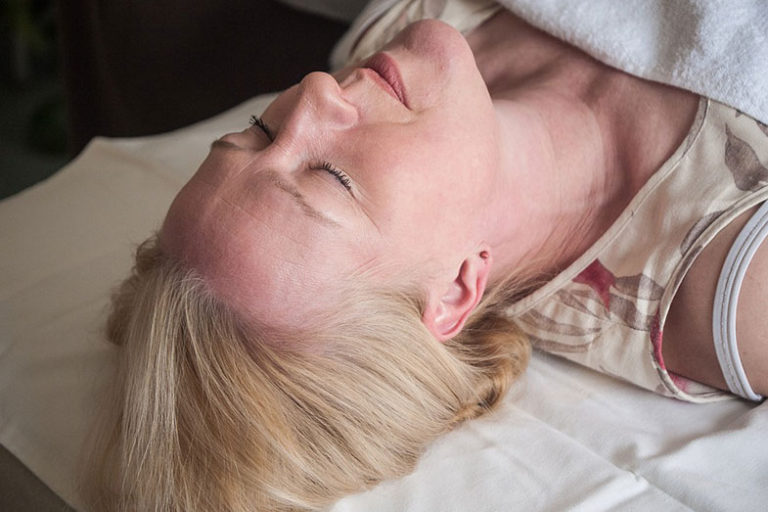Is It Better to Sleep in a Cold or Warm Room When Sick?
Disclosure: We may get commissions for purchases made through links in this post.
Health and well-being are vital aspects of human life. When we are sick, our body’s system is susceptible to various infections, physical exertions and other circumstances that may be detrimental to our over-all physical and mental health. That’s why aside from a bevy of medicines and medical treatment, health professionals often advise sick people to get plenty of rest. However, when we are sick, our pain and discomfort tend to often result in irritability and restlessness. Thus, it can be quite hard for us to be well-rested if we are not in the frame of mind for relaxation. So, is it better to sleep in a cold or warm room when sick?
Numerous studies conducted on the effects of temperature to the quality of sleep an individual has suggests that we may be better off sleeping in a cold room than in a warm room when sick. It was found that sleeping in a cold room results in a deeper and better quality of sleep that promotes the natural regenerative properties of our body. Sleeping in a warmer climate produces a shallow state of sleep where one can easily be awakened by small movements and noises that can disrupt sleep and result to irritability. Sleeping in a cold room also presents numerous health benefits as cool temperature and dark environment stimulates the production of certain hormones that are instrumental to maintaining good health and long life.

What Are the Effects of Sleeping in a Cold Room?
Sleeping in a cool room provides us with more than just comfort and extra hours of sleep. Cold room temperatures are ideal for resting and recovery as well, as it supports the natural regenerative properties of our body. That’s why most hospitals and health centers opt for cooler recovery rooms as it aids patients in their fast recovery. Most countries that lie in the cooler parts of the world also boasts of their good health and longevity than countries that lie along the equator. Here are some reasons why cooler climates and room temperatures are better not only for your sleep but for your over-all health as well:
1. Fall Asleep Quickly
Have you ever noticed that when you are sleeping in a cool, dark room, you tend to fall asleep easier than sleeping in a warm, bright space?
Due to years of evolution, human bodies have grown accustomed to sleeping in conditions that mirror that of a prehistoric cave – dark, cool, and quiet. Sleeping within such conditions promote longer and better quality of sleep as it unconsciously signals the brain that it is far from danger and that resting is perfectly safe under these conditions. On the other hand, one tends to be alert and active when under warm and bright conditions since our natural programming suggests that these conditions of being “out in the open” means that we need to work, move around or be wary of predators that may be lurking around to pounce on us.
In biology, the instant drop in body temperature induced by cooler climates also sends signal to the brain that it is time to sleep. This is due to the natural body clock in which our body operates. Our circadian rhythm dictates that the warm, sunny part of the day is the part where we need to be awake, alert and active while the cool, dark part of the night is when we need to retire and recompose ourselves for the next day to come.
2. Improved Quality of Sleep
Sleeping in a cold room not only helps us fall asleep faster but it also tends to help us fall asleep better. Since sleeping in a cold room stimulates sleep and signals the brain and the body that it is okay to rest, it reduces the instances of wakefulness and tossing and turning throughout the night allowing you reach a deeper state of sleep.
Studies on sleep and room temperatures suggests that bedrooms with a thermostat between 60 to 68 degrees stimulates the production of the hormone melatonin. Melatonin is the hormone necessary to establish a sleep-wake cycle. Thus, the production of this hormone aids in the formation of a sleeping habit and helps our body and mind be in the frame of orientation for sleep during prescribed hours.
3. Anti-Aging and Regenerative Properties
The hormone melatonin is also responsible for anti-aging properties. This hormone signals the other cells within our bodies when it is time to recover and regenerate after a period of wear and tear during the day. Hence the term, “one needs their beauty sleep”, when maintaining an appealing and youthful appearance.
Not only does melatonin feature regenerative and aesthetic-enhancing properties but they also claim numerous health benefits such as increased brain health, regular menstrual flow, enhanced mood, weight loss and some cancer-fighting properties.
4. Prevention of Gastric Illnesses
Gastric illnesses such as problems in digestion, hyperacidity and refluxes can also be addressed by sleeping within cooler room temperatures. Although no therapeutic claims are guaranteed, cold climates and good quality of sleep burns more calories and facilitates better digestion. Since sleep promotes better metabolic function, having enough quality rest burns more excess fat and promotes a healthy body.
5. Reduced Risk of Contracting Diseases
Aside from preventing gastric illnesses and aiding in effective metabolism, sleeping in cooler temperatures also boost one’s immunity and reduces the risk of contracting various diseases.
The production of melatonin in the body not only helps your cells recover and grow after weathering life’s toughest moments but the hormone also has anti-oxidizing properties that flushes impurities from the body while also protecting the cells. Antioxidants also slows the aging of the brain keeping it sharp and focused, thereby reducing the risk of Alzheimer’s Diseases and other cognitive disabilities.
Cooler temperatures also promote glucose disposal and increases insulin sensitivity which are all essential in keeping those with Type 2 Diabetes healthy.
6. Prevents Insomnia
Insomnia is one of the most common sleep disorders in the world. Usually, this condition stems from a warmer core body temperature that signals the brain to wakeful and alert even during late hours in the night. Hence, in order to address this, one needs to significantly decrease the core body temperature in order for the brain to produce hormones that will signal the body when it is time to rest. Sleeping in a cool room temperature addresses this as well as providing a comfortable and cool environment that is conducive for sleep.
What Are the Effects of Sleeping in a Warm Room?

Sleeping in a warm room may be ideal if you are the type of person who gets cold rather quickly. However, throughout the night, you may find yourself tossing and turning under the sheets, unable to get a straight 8-hour sleep. You can find yourself easily awakened by slight movements and little noises. Don’t fret for theses are all fairly normal reactions for somebody who sleep in a warm room. Warmer temperatures tend to induce a state of wakefulness and keeps us alert despite falling asleep. That’s why you react easily to minor stimulus despite falling deep in slumber. The following are some effects of sleeping in a warm room for a prolonged period of time:
1. Initiates Wakefulness
Warm rooms cultivate a state of wakefulness since the rise in body temperature suggests that there is enough energy in the body to burn during the day. Hence, when you sleep in a room without proper ventilation or air-conditioning, then there is a huge chance that you have difficulty reaching a deeper level of sleep. Hence, small movements and soft noises may easily pull you into consciousness and impede your sleep schedule.
2. Hinders Cognitive Development
Another downfall of having a warm bedtime climate is that it can have a significant detrimental effect in one’s cognitive function. Simply put, the lack of quality sleep caused by the wakefulness of our body tends to hamper the recovery of brain cells and prevents synaptic connection that facilitates better learning and memory storage. All of which tend to occur during Rapid Eye Movement (REM) stage of sleep.
3. Increased Discomfort and Irritability
Profuse sweating during the night, feelings of overheating and warm and humid conditions often result to feelings of discomfort and irritability. Hence, when you are not relaxed and comfortable with your sleeping environment, it can be hard to catch some Z’s as you will find yourself stressed and unable to unwind.
The rise in core body temperature also tends to promote the circulation of blood, causing the rise in blood pressure which may lead to headaches, body pains and extreme feelings of unease.
4. Susceptibility to Night Terrors
Lastly, sleeping in warm quarters makes you prone to having nightmares or night terrors. This is due to the difficulty in the intake of oxygen and proper breathing during bedtime due to the hot and humid condition of your room. If this happens, low levels of oxygen in the brain transforms your difficulty in breathing in the physical realm into something that your sleeping mind interprets as danger or trouble. Hence, one tends to wake up in the middle of the night, drenched in sweat, heart hammering inside the chest and having difficulty breathing.
The Final Verdict – Is It Better to Sleep in a Cold or Warm Room When Sick?
Ideally, when we are sick or feverish, our body temperature naturally rises by a few degrees, sleeping within cooler climates will help the body achieve homeostasis by countering the rise in body temperature with a cooler external environment. It is often suggested that when one has a fever, one shouldn’t sleep in warm conditions or cover themselves up with a blanket as this only retains heat within the body thereby increasing the body temperature caused by the fever even more.
Hence, it is always advisable to seek cooler temperatures and sleep within cold rooms when one is afflicted with illnesses. After all, this does not only balances the thermal levels within the body but also promotes a good quality of rest and relaxation that is essential towards a speedy recovery.






